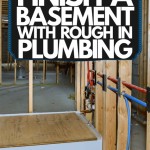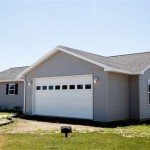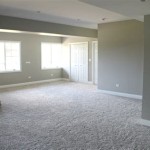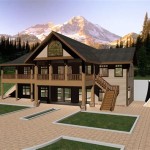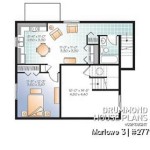Essential Considerations for the Ideal Basement Flooring
Transforming your basement into a functional and inviting space requires careful consideration of flooring options. With numerous materials and styles available, choosing the best flooring for your basement can be a daunting task. This comprehensive guide will delve into key aspects to help you make an informed decision and create a durable, stylish, and moisture-resistant basement flooring.
Factors to Consider When Selecting Basement Flooring
1. Moisture Resistance:
Basements are prone to moisture, so choosing flooring that can withstand dampness is crucial. Opt for materials like porcelain tile, vinyl, or epoxy flooring that are waterproof or moisture-resistant.
2. Durability:
Basement flooring should be durable enough to withstand heavy foot traffic, potential spills, and moving furniture. Laminate, engineered hardwood, or luxury vinyl tile offer excellent wear resistance.
3. Comfort and Warmth:
If you plan to use your basement as a living space, consider flooring that provides comfort and warmth underfoot. Carpet or cork flooring can add a cozy touch, while radiant floor heating can provide additional warmth.
4. Style and Aesthetics:
The flooring you choose should complement your basement's overall design and aesthetics. Consider the texture, color, and pattern of the flooring to create the desired ambiance.
Top Basement Flooring Options
1. Porcelain Tile:Porcelain tile is an excellent choice for basements due to its durability, moisture resistance, and variety of styles. It is easy to clean and maintain, making it ideal for high-traffic areas.
2. Vinyl Flooring:Vinyl flooring comes in various styles, including luxury vinyl tile and sheet vinyl. It is waterproof, durable, and easy to install, making it a popular option for basements.
3. Laminate Flooring:Laminate flooring resembles hardwood but is more affordable and durable. It is moisture-resistant and offers a wide range of styles to suit different tastes.
4. Engineered Hardwood:Engineered hardwood provides the elegance of traditional hardwood with increased durability and moisture resistance. It is more expensive than laminate but offers a more authentic hardwood look.
5. Epoxy Flooring:Epoxy flooring is a durable, chemical-resistant option that is often used in commercial settings. It is seamless, easy to clean, and can be customized with various colors and designs.
Professional Installation vs. DIY
While some flooring options may seem DIY-friendly, it is recommended to consider professional installation. Improper installation can compromise the flooring's performance and void warranties. Professional installers have the expertise and tools to ensure a seamless and durable floor that will last for years to come.
Conclusion
Choosing the right flooring for your basement is a crucial decision that can enhance the functionality, aesthetics, and overall value of your home. By considering the essential factors discussed in this guide and exploring the various flooring options available, you can make an informed decision that will create a stylish, durable, and moisture-resistant basement flooring that will meet your needs and exceed your expectations.

What Is The Best Flooring For Basements Get Pros And Cons

5 Best Flooring Options For Basements Floors2day

The Best Flooring Options For Your Basement From Forest Llc

Best Flooring For Basement Pros And Cons Of

What Are The Best Flooring For Basement In Homes

4 Of The Best Options For Basement Flooring In Your Home Reallycheapfloors America S Cheapest Hardwood

The Best Flooring Options For Your Basement America

The Best Basement Flooring Options For Your Home

Best Basement Flooring Options Forbes Home

White Bamboo 1 2 12mm Cork Floating Fwb12 Icork Floor

